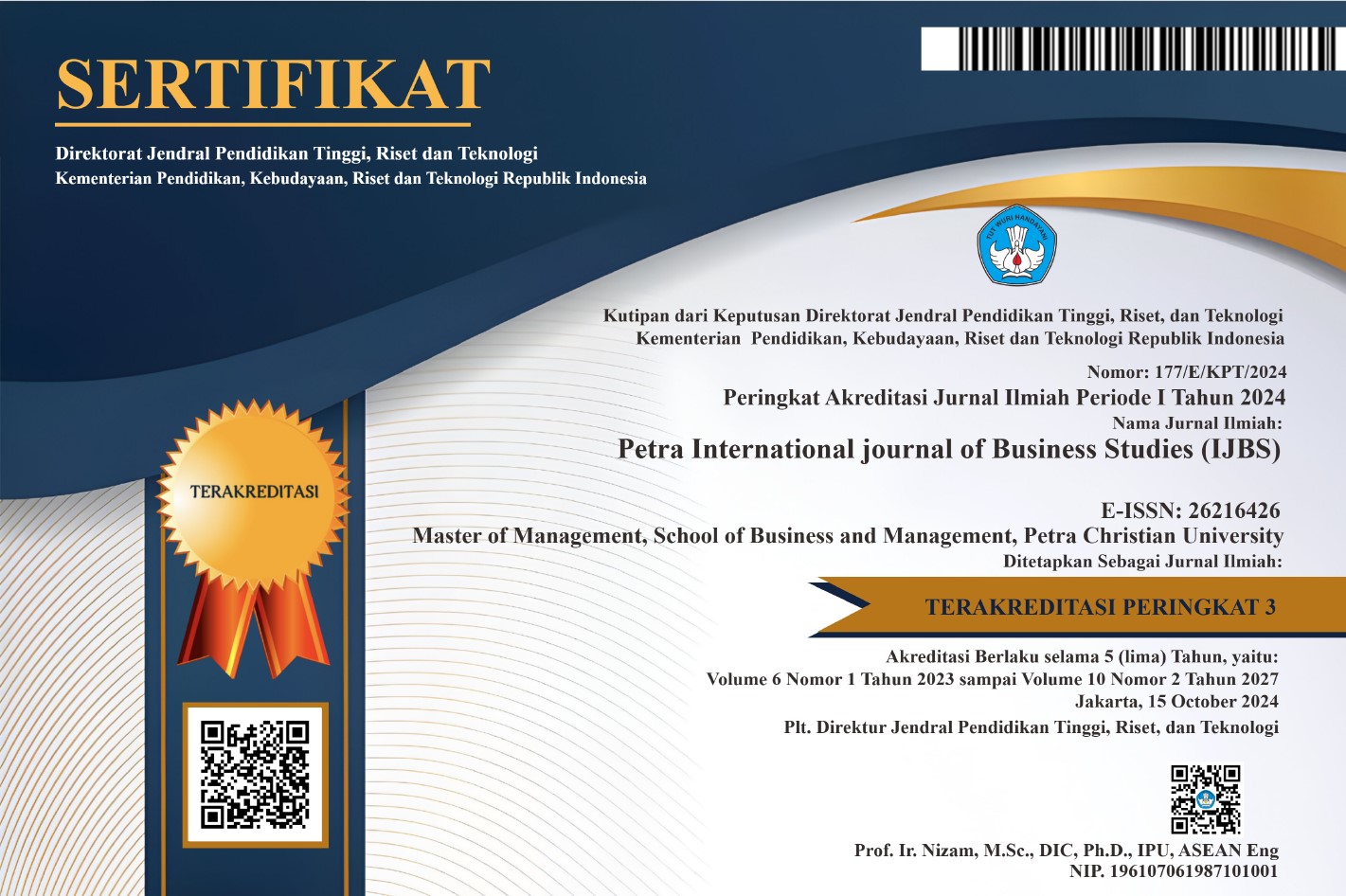The Effects of Personality Types and Demographic Factors on Overconfidence Bias and Decision Making of Investment Types
DOI:
https://doi.org/10.9744/ijbs.1.2.57-62Keywords:
investment; overconfidence bias; personality types; demographic factorsAbstract
In financial management theories an investor will act rationally and make a desicion to invest based on the rules in the financial management theory. Nevertheless, in reality the decision making to invest is very often irrational and not in accordance with the financial management theory. This deviation is caused by the bias of investors’ behaviour in making a decision. Investors who only focus on the return of an investment without paying attention to the risks are said to experience overconfidence bias. This research analyses the factors which are considered to influence investors with overconfidence bias in deciding the investment types. The factors are personality type, marital status, income level, work experience, and fields of study that have been taken. This research can contribute to completing the study of financial management, particularly in the investment decision and putting psychological factors in the analysis of financial management
Downloads
References
Bannier, Christina E., and Milena Neubert (2016). "Actual and perceived financial sophistication and wealth accumulation: The role of education and gender." Available at SSRN 2714823.
Bhandari, G., & Deaves, R. (2006). “The demographics of overconfidence”. The Journal of Behavioral Finance, 7(1), 5-11.
Dashtbayaz, Mahmoud Lari, and Shaban Mohammadi (2016). "The effect of managerial overconfidence on investment." International Journal of Accounting and Economics Studies 4.1: 21-23.
Dunning, D., & Story, A. L. (1991). “Depression, realism, and the overconfidence effect: Are the sadder wiser when predicting future actions and events?.” Journal of personality and social psychology, 61(4), 521.
Goldberg, L. R., (1990) “An alternative description of personality: The big five factor
Structure”. Journal of Personality and Social Psychology, 59, 1216 – 1229.
Hidayat, A., & Setyaningsih, S. (2011). “Pengaruh economic value added, market share, earning dan net cash flow terhadap return saham (studi pada perusahaan manufaktur jenis consumer goods di bursa efek Indonesia 2004-2007”. JWEM (Jurnal Wira Ekonomi Mikroskil), 1(2).
Ho, Po-Hsin, Chih-Yung Lin, and Hung-Kun Chen (2015). "CEO Overconfidence, Financial Institution Failures and Risk-taking Behaviors." International Research Journal of Applied Finance Vol. VI Issue – 8 August. ISSN 2229 – 6891 Page No.: 514.
Huang, Ronghong, Kelvin Jui Keng Tan, and Robert W. Faff (2016). "CEO overconfidence and corporate debt maturity." Journal of Corporate Finance 36: 93-110.
Koebel, Bertrand, André Schmitt, and Sandrine Spaeter (2016). “Do Self-Theories On Intelligence Explain Overconfidence And Risk Taking? A Field Experiment”. No. 2016-11. Bureau d'Economie Théorique et Appliquée, UDS, Strasbourg,
Mayfield, Cliff, Grady Perdue, and Kevin Wooten (2008). "Investment management and personality type." Financial Services Review 17.3: 219.
Moutafi, Joanna, Adrian Furnham, and John Crump (2003). "Demographic and personality predictors of intelligence: A study using the NEO personality inventory and the Myers–Briggs type indicator." European Journal of Personality 17.1: 79-94.
Pompian, Michael M. (2006). Behavioral Finance and Wealth Management. How to Build Optimal Portfolios That Account for Investor Biases. First Edition. New Jersey: John Wiley & Sons, Inc
Sitlani, Manish & Sharma, Geeta & Sitlani, Bhoomi (2011). Investment Choice of Occupants of Financial Services Industry: A Demographic Study. The IUP Journal of Behavioral Finance, Vol. VIII, No. 1.
Tekçe, Bülent, Neslihan Yılmaz, and Recep Bildik (2016). "What Factors Affect Behavioral Biases? Evidence from Turkish Individual Stock Investors." Research in International Business and Finance.
Tjandrasa, Benny B. (2014). Decision Making From the Perspective of Behavioral Finance.Prosiding Seminar Nasional & Call for Paper Fakultas Ekonomi Universitas Kristen Maranatha
Additional Files
Published
Issue
Section
License
Petra IJBS (e-ISSN: 2621-6426) is published by Master of Management program, School of Business and Management, Petra Christian University, Indonesia (MM SBM PCU).












